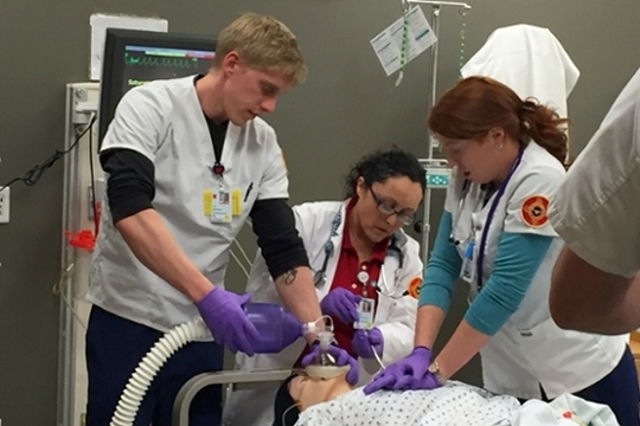
Nursing ETDs
Publication Date
1-28-2015
Abstract
This study addressed the gaps in knowledge about psychiatric boarding with the aims of (a) determining the extent of psychiatric boarding in Florida hospitals for individuals meeting criteria for involuntary psychiatric examination and (b) explaining what health services system resources and individual patient determinants contribute to psychiatric boarding. Individuals who go to general hospital emergency departments (EDs) in need of involuntary mental health examinations sometimes must wait in EDs for admission to inpatient units because of the critical shortage of inpatient or crisis mental health services. The process of keeping patients in the ED who are waiting 4 hours or longer for admission to inpatient psychiatric facilities is called psychiatric boarding. Average boarding times in the limited studies about psychiatric boarding range from 24 hours to several days. These time frames all exceed the statutory maximum of 12 hours allowed by the Florida Mental Health Act. None of the published research about psychiatric boarding focused on individuals needing care under an involuntary status. The conceptual framework for this study was the health services utilization model. The first stage of the study identified hospitals for study site recruitment by examining a statewide individual visit level data set to identify hospitals in Florida with EDs that routinely have high numbers of patients who are transferred to psychiatric hospitals. Following a pilot of data collection procedures, in the second stage of the study, data collectors at the two study sites retrospectively reviewed the electronic health records (EHRs) of 85 randomly selected participants (total participants N = 170) who were ED patients requiring involuntary mental health examinations. Data collectors submitted deidentified participant clinical and demographic information to the primary investigator. Ninety percent of the participants in this study experienced psychiatric boarding. Nearly one-half of participants boarded longer than the 12-hour maximum allowed by Florida law. Two of every 11 participants waited longer than 24 hours before gaining access to a receiving facility authorized to perform the involuntary mental health examination. The study identified that some health services system factors contributed to the problem, but the specific factors remain unclear. The individual determinants found to be significantly associated with frequent and longer boarding were being male, increased age, being a Medicare beneficiary, not requiring medical treatments to stabilize an emergency medical condition, and being intoxicated. The information this study presented can assist state mental health policy makers in Florida to direct future research to enable the most appropriate allocation of limited mental health resources to provide appropriate receiving facility services across Florida.
Degree Name
Nursing
Level of Degree
Doctoral
Department Name
College of Nursing
First Committee Member (Chair)
Tinkle, Melinda
Second Committee Member
Kimball, Richard
Third Committee Member
Bedrick, Edward
Fourth Committee Member
Christy, Annette
Sponsors
The Robert Wood Johnson Nursing and Health Policy Collaborative at the University of New Mexico, College of Nursing
Keywords
Mental illness, boarding, involuntary examination, emergency, psychiatric emergency
Language
English
Document Type
Dissertation
Recommended Citation
Brennaman, Laura H.. "BOARDING PATIENTS WHO REQUIRE INVOLUNTARY MENTAL HEALTH EXAMINATIONS IN FLORIDA." (2015). https://digitalrepository.unm.edu/nurs_etds/22
